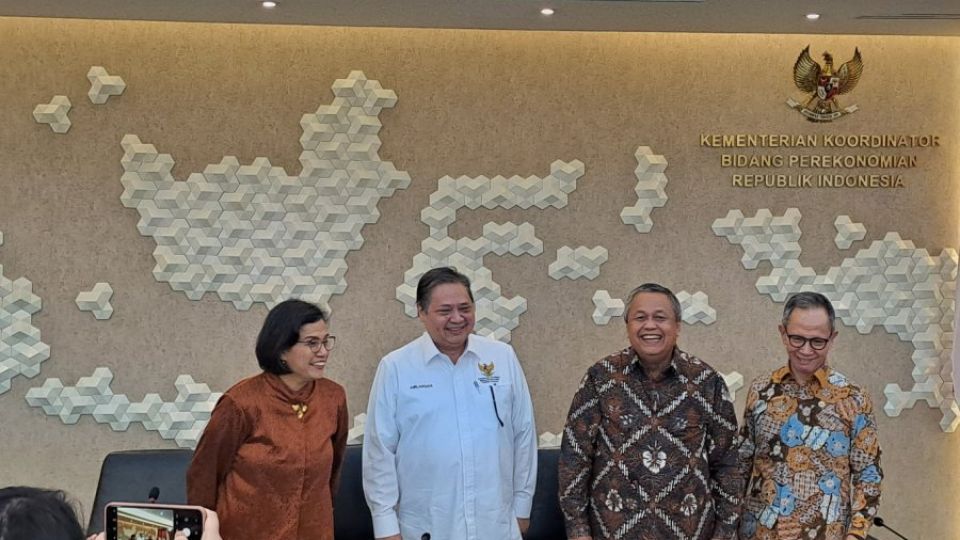February 22, 2024
JAKARTA – Bank Indonesia (BI) has kept its benchmark interest rate unchanged at 6 percent and reaffirmed that cuts to the policy rate might be in order in the second half of this year.
Briefing the press on Wednesday after the central bank’s two-day monthly policy meeting, BI Governor Perry Warjiyo noted that the decision considered geopolitical developments and a global economy that was performing better than previously estimated.
“For now, we will maintain the BI Rate. Be patient, okay. Until when? [According to] our baseline scenario, the plan is [to reduce the rate] in the second half [of 2024],” Perry said, before mentioning three conditions to be met for rate cuts, namely under-control inflation, economic growth and a stable rupiah exchange rate.
BI had maintained the key rate at 5.75 percent for most of 2023, before unexpectedly hiking it by 25 basis points (bps) in October, citing global economic uncertainties as the main concern.
In February these uncertainties remain on BI’s mind, as geopolitical tensions persist and may disrupt global supply chains, according to Perry.
Furthermore, BI also considered when the United States Federal Reserve might start cutting its interest rate benchmark, the federal funds rate (FFR), Perry explained, adding that a cumulative reduction of 75 bps in the FFR was projected for the second half of 2024.
The latest US labor market and inflation data has dashed hopes for an imminent FFR reduction, with market pricing now pointing to June as the most likely time for a first rate cut in the US, according to the CME FedWatch Tool.
“We believe that when there is certainty about the FFR going down and about global economic conditions […], there will be certainty for foreign investors to invest in Indonesia,” Perry said.
He elaborated that incoming investment was important to avoid imported inflation and ensure rupiah stability, which was needed to prepare for global risks.
However, fueled by strong GDP growth in the US and India, Perry noted that the global economy was playing out better than expected, despite recession in some developed economies like the United Kingdom and Japan.
Perry said that the growth in the US and India had also helped Indonesia’s GDP grow, as exports to both countries were increasing, which was a big help amid weaker demand from China.
Recession is commonly defined as two consecutive quarters of annual GDP contraction.
Coordinating Economic Minister Airlangga Hartarto told reporters on Monday that the UK recession had little to no effect on Indonesia since the economic relationship between the two countries was limited.
Japan’s recession, on the other hand, might impact Indonesia, although the nature of that impact is not straightforward. Airlangga claimed it may be positive for Indonesia as Japanese firms may look for new sources of growth, which could translate into increasing their investment in Southeast Asia’s largest economy.


